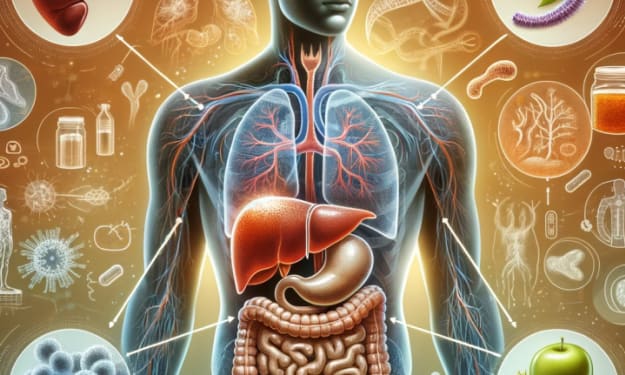The Mediterranean Diet
A Delicious Path to Health and Longevity
Understanding the Mediterranean Diet
The Mediterranean diet is a plant-based eating pattern inspired by the traditional foods and lifestyle of countries bordering the Mediterranean Sea. It is known for its numerous health benefits, including a reduced risk of heart disease, diabetes, and certain cancers. This article will provide an overview of the Mediterranean diet, its key principles, recommended foods, sample meal plan, and tips for incorporating it into daily life.
The Mediterranean diet is not just a diet, but a way of life that focuses on whole, unprocessed foods and encourages a sense of community and enjoyment in meals. It is based on the eating habits of people in countries like Greece, Italy, and Spain, where rates of chronic diseases are lower compared to other Western countries. The Mediterranean diet emphasizes a high consumption of fruits, vegetables, whole grains, legumes, nuts, and seeds, along with olive oil as the primary source of fat. It also includes moderate intake of dairy products, fish, and poultry, and limited consumption of red meat, sweets, and alcohol. By following the Mediterranean diet, individuals can nourish their bodies with nutrient-dense foods and improve their overall health.
What is the Mediterranean Diet?
The Mediterranean diet is characterized by its emphasis on plant-based foods, healthy fats, and moderate consumption of dairy, fish, and poultry. It encourages individuals to consume a wide variety of fruits and vegetables, which provide essential vitamins, minerals, and antioxidants. The diet also emphasizes the consumption of whole grains, which are rich in fiber and provide sustained energy throughout the day. Olive oil is a key component of the Mediterranean diet and is used in cooking and as a dressing for salads. It is rich in monounsaturated fats, which have been shown to have numerous health benefits, including reducing the risk of heart disease.
In addition to these plant-based foods, the Mediterranean diet includes moderate amounts of dairy products, such as cheese and yogurt. These foods provide calcium, protein, and probiotics, which are beneficial for gut health and overall well-being. The diet also includes moderate amounts of fish and poultry, which are excellent sources of lean protein and essential omega-3 fatty acids. Red meat consumption is limited in the Mediterranean diet, as it is associated with an increased risk of certain diseases. Finally, the Mediterranean diet encourages individuals to limit their intake of sweets and alcohol, as excessive consumption of these foods can have negative effects on health.
Recommended Foods and Avoidances
When following the Mediterranean diet, it is recommended to include a variety of plant-based foods such as fruits, vegetables, whole grains, legumes, nuts, and seeds. These foods are rich in antioxidants, fiber, and essential nutrients that support overall health and well-being. For example, fruits and vegetables provide a wide range of vitamins and minerals, as well as phytochemicals that have been shown to have anti-inflammatory and disease-fighting properties. Whole grains, such as quinoa and whole wheat bread, are rich in fiber and provide sustained energy throughout the day. Legumes, such as chickpeas and lentils, are excellent sources of plant-based protein and fiber. Nuts and seeds, such as almonds and chia seeds, are packed with healthy fats, protein, and essential nutrients.
Healthy fats are a key component of the Mediterranean diet, and extra virgin olive oil is the primary source of fat. Olive oil is rich in monounsaturated fats, which have been shown to have numerous health benefits, including reducing the risk of heart disease and inflammation. Other sources of healthy fats in the Mediterranean diet include avocados, which are rich in monounsaturated fats and fiber, and provide a creamy texture to dishes.
Lean proteins are also an important part of the Mediterranean diet. Fish, such as salmon and sardines, is rich in omega-3 fatty acids and provides essential nutrients like vitamin D and selenium. Poultry, such as chicken and turkey, is a lean source of protein and provides important nutrients like vitamin B12 and iron. Moderate consumption of cheese and yogurt is also encouraged in the Mediterranean diet, as they provide calcium, protein, and probiotics, which are beneficial for gut health.
On the other hand, foods to avoid or limit on the Mediterranean diet include red meat, processed meats, and sugary foods. Red meat consumption has been associated with an increased risk of heart disease, certain cancers, and other chronic diseases. Processed meats, such as sausages and bacon, are high in sodium and unhealthy fats, and have been linked to an increased risk of certain diseases. Sugary foods, such as candies, pastries, and sugary beverages, provide empty calories and can lead to weight gain and an increased risk of chronic diseases. By avoiding or limiting these foods, individuals can optimize their health and well-being on the Mediterranean diet.
About the Creator
Timothy A Rowland
I’m an every day human Xennial from the United States. I have many interest. I just want to improve your life and maybe entertain you. Available for editing and LeadsLeap projects at: https://www.fiverr.com/greyhatcompany







Comments (1)
I've always thought the Mediterranean diet just seems the most natural and healthy.